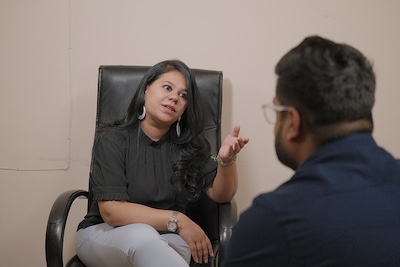Coaching to Support the Executive Director of a Small Nonprofit
- Home
- 80 Small Nonprofit Practices
- Coaching to Support the Executive Director of a Small Nonprofit
Coaching to Support the Executive Director of a Small Nonprofit provides you with another four practices to check your organization against.
As previously, if the wording doesn't seem relevant to your situation, adjust it. Establish a baseline of behavior and measure your improvement in another year's time.
The goal is to intentionally aim for improvment in all areas of the organization.
29. Good Support Staff Allows the Executive Director to Work on Priorities

This is Practice 29 of 80
Good leaders benefit from good assistants and support staff. The leader appropriately delegates and knows how to work on priorities.
Your Executive Director is not crippled in their effectiveness because they have to spend too much time doing things that are better done by someone else.
Generally, if the Executive Director can easily train or find someone else to do routine tasks, it is probably not their priority to be doing it themselves.
If We Were Coaching Together I Would Ask This
- What, if anything, needs to be changed in your operation to allow your ED to spend more time working on priority items?
- How well can your Executive Director easily let go and delegate to others?
- How well is your ED working on priorities, or are they getting sidetracked with many jobs that could be better done by someone else?
Why This Practice is Important to Me As a Leadership Coach
If a person can determine and work on priorities, much more can be accomplished.
Almost every day, I am working with at least one client who has been lost in the swamp of just "doing stuff." Their feeling about time management ranges from frustrated to overwhelmed to lost.
If for nothing else at all, I would retain a coach to work on this one area. If you can craft the space to work on high-priority items without interruption, even for 90 minutes a day, you would notice an unbelievable difference in productivity and satisfaction.
The Key Concept, Attitude or Action That Drives This Practice
ASSISTANCE
A desire for effectiveness is a good driver.
An Expansive Thought
The partnership of a great leader and an effective executive assistant and other support staff makes for exceptional possibilities.
An Action Point
Leaders working on priorities rise to the top. Have yours?
30. The Board Provides a Supportive
Environment for the Executive Director

This is Practice 30 of 80
Do you have a comfortable environment where the leader can be heard? Are there signs of being overwhelmed, hurting at home or being financially strapped?
Boards and those providing support don’t have to have all the answers but they do need to listen.
It is lonely at the top. Leaders of small, particularly Christian, organizations often remain silent because they believe others will view some of what they might have to say as complaining, weakness, poor management or making accusations.
Make sure you take the time to ask questions and listen in a supportive and genuine way. Listen carefully and you will know what is needed.
If We Were Coaching Together I Would Ask This
- When your ED is feeling alone, isolated, or disconnected, what support is in place for him or her?
- When might your ED feel abandoned in any way? How would you know?
- How will you address that?
- If you provided a forum for them to say exactly what they wanted to say, how do you think they would use it?
- How can you make or improve on, an environment of trust, confidentiality and listening?
Why This Practice is Important to Me As a Leadership Coach
Leaders face personal challenges like anyone else and need a place to be heard. I've worked with Executive Director's who have left organizations and service they love, because they are so frustrated with the Board they have to get out.
Small organizations often have too many board members who have good hearts but don't know what they are doing or should be doing on the board. About the best that can be said is that they show up and occupy a seat.
If your board is "sleeping," please wake them up or you may lose an Executive Director who wanted to, and could have, taken you further.
A key element of coaching to support the executive director of a small nonprofit, is helping the board pay attention to what support might actually be needed.
The Key Concept, Attitude or Action That Drives This Practice
SUPPORT
Leaders that KNOW they are supported are strengthened.
An Expansive Thought
Time, confidentiality and non-judgment will often serve a leader better than silence and lack of listening.
An Action Point
Create a space for real care to be expressed for your leadership.
31. The Executive Director Works with a Seasoned Mentor or Professional Coach

This is Practice 31 of 80
A Coach or mentor is invaluable to the leader. The Executive Director who loves what they are doing and does it well will move an organization ahead at an accelerated pace.
If We Were Coaching Together I Would Ask This
- Is your Executive Director happy and fulfilled? How do you know this?
- How satisfied is your ED in what is being accomplished?
When the smile is gone, start asking questions. They may inform you of things that need attending to now.
This is when they can benefit from working with a Coach or mentor in whom they have confidence. A safe environment to express concerns and find ways of articulating them is created.
- How often does a regular meeting that solicits the real feelings of the Executive Director happen?
- What real, tangible, support is your ED actually getting from the mentor or Coach they have chosen?
- How do you know this? What kind of a track record does this person have?
Why This Practice is Important to Me As a Leadership Coach
Working with a professional Coach produces greater effectiveness. Am I biased on this point. Absolutely. With one caveat. All coaches are not the same. They just aren't.
It's important for the coach to know what "greater effectiveness" really looks like. They know how to draw the best out of the client.
Also keep in mind, a mentor mentors. Don't let an Executive Director mumble something about so-and-so being their mentor, when they don't do anything serious together about improving the leader. Yes, by all means, watch and learn from those you value, but be intentional about seeking real, tangible "let's now talk about this," support.
Mentoring or coaching to support the executive director of a small nonprofit must always exhibit one characteristic. It is intentional.
The Key Concept, Attitude or Action That Drives This Practice
FULFILLMENT
Involvement and satisfaction provide the fuel to keep going.
An Expansive Thought
People at the top of their game use a coach to stay there. Shouldn’t you?
An Action Point
Have someone, preferably a professional leadership coach, work closely with your Executive Director for their personal good and effective leadership.
32. A Process of Executive Director Accountability is in Place

This is Practice 32 of 80
Your accountability review should not merely consist of a report from the particular executive but from those they work with, deal with and serve.
It should gauge both their own and your perception of performance and well-being around a whole host of items. It should be frequent enough to give them the feedback they need and spaced enough not to be intrusive.
If We Were Coaching Together I Would Ask This
- What type of accountability review do you conduct with your ED? Who does it?
- How well is your review designed to surface a broad range of concerns, or does it only deal with specific areas?
- What permission has your Executive Director given you to ask about their personal life, above and beyond professional accountability?
- How do you plan to ask tough questions without being overly intrusive?
- How well is the review process written out, and understood and agreed to by everyone, well ahead of time?
- How well does your review comply with any applicable current legislation?
Why This Practice is Important to Me As a Leadership Coach
Business and nonprofits are littered with the executive level wreckage resulting from a lack of accountability. Being accountable provides safety for everyone.
I often coach with my clients to train their boards on how to require and follow through on accountability. It's so helpful to have in place and good leaders welcome it.
The Key Concept, Attitude or Action That Drives This Practice
ACCOUNTABILITY
A willingness to be openly accountable means more energy will be directed toward the aims of the organization.
An Expansive Thought
If we care for our executive level leadership in tangible and open ways, they will care for us and the things that are important.
An Action Point
Initiate regular reviews that are somewhat less reporting on results and much more reporting on personal and professional well-being. You will learn a lot.
This is the end of Coaching to Support the Executive Director of a Small Nonprofit.
Click here to review the first four practices, Board Coaching to Develop Your Executive Director.
How Will Your Organization Apply Coaching to Support the Executive Director of a Small Nonprofit?
Of the four points for review in Coaching to Support the Executive Director of a Small Nonprofit, which stands out to you in most need of some changes for your organization?
This is the opportunity to initiate even a few action items that will make your organization, your Executive Director, and your mission, that much more effective.
Contact me here Privacy Policy
© G.E.Wood and Associates. All Rights Reserved in all media.
G.E. Wood and Associates is an international coaching firm registered in Ontario, Canada
142 Pratt Crescent, Gravenhurst, Ontario, Canada, P1P 1P5